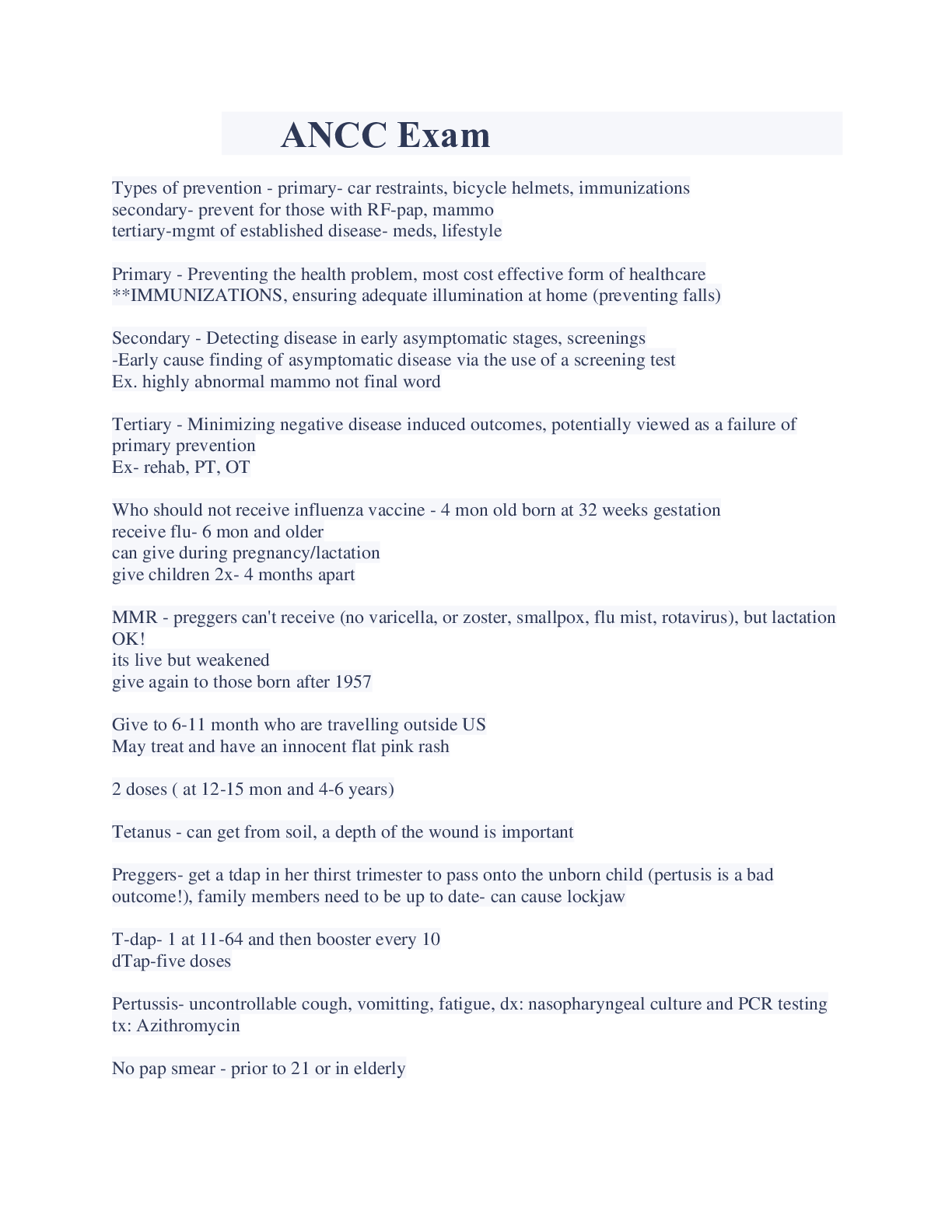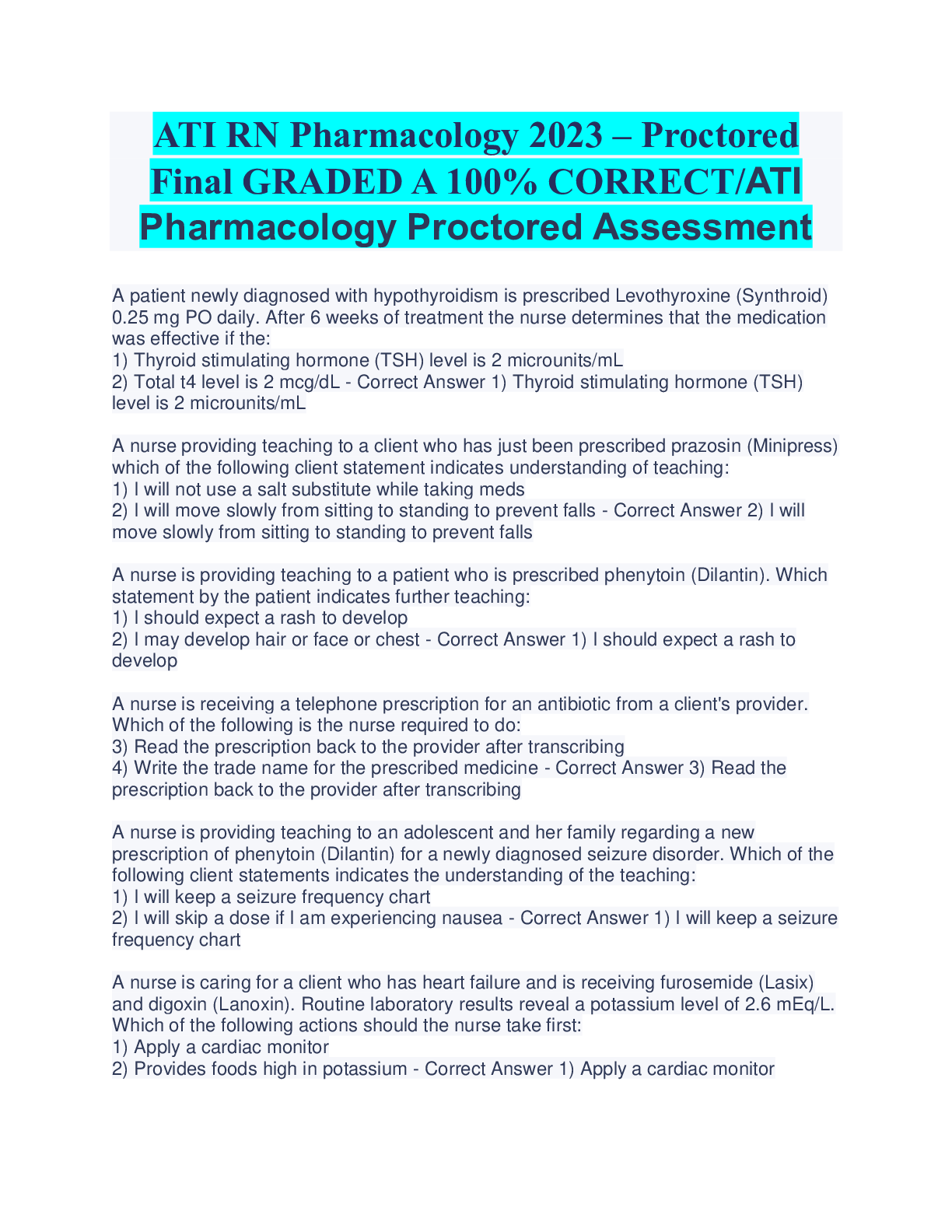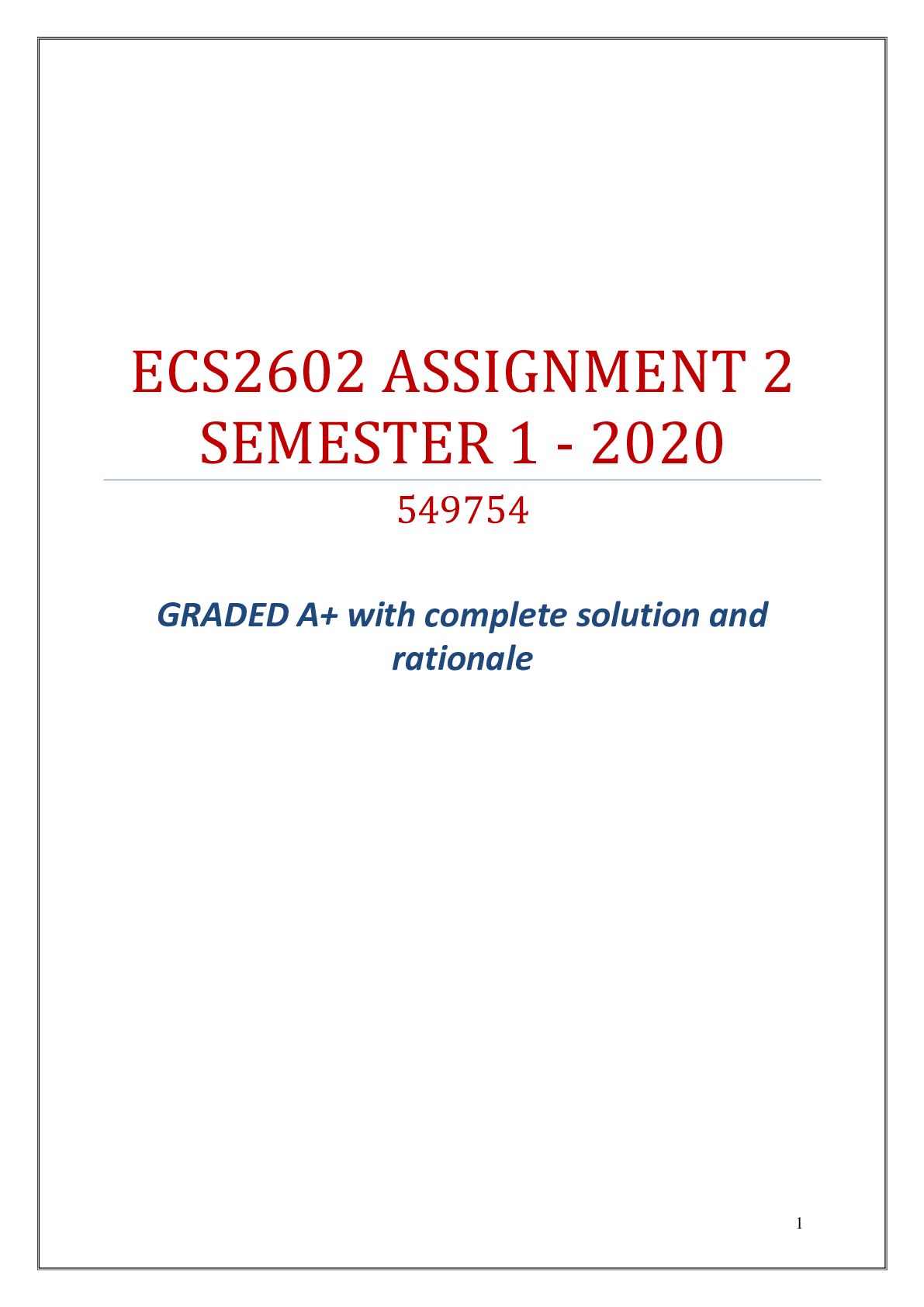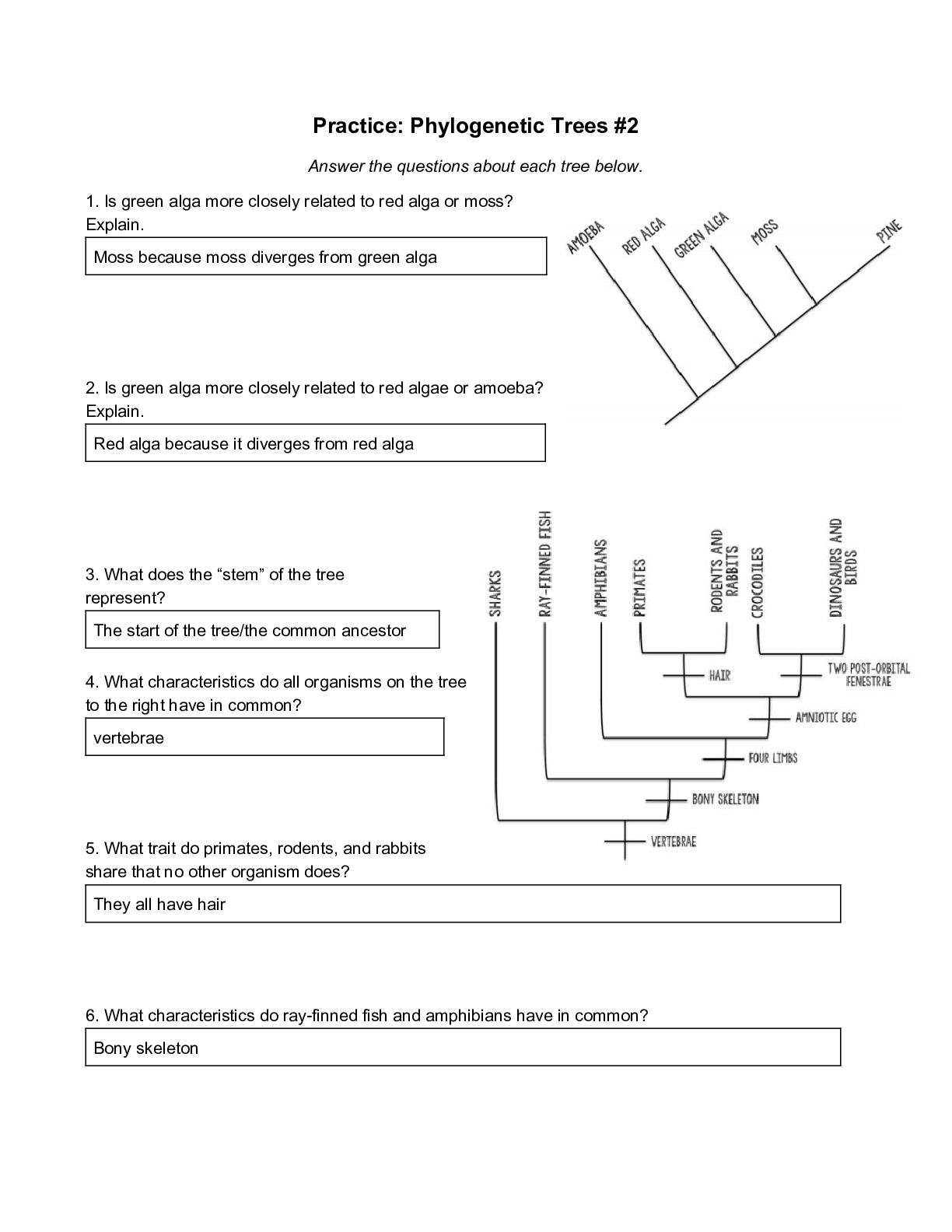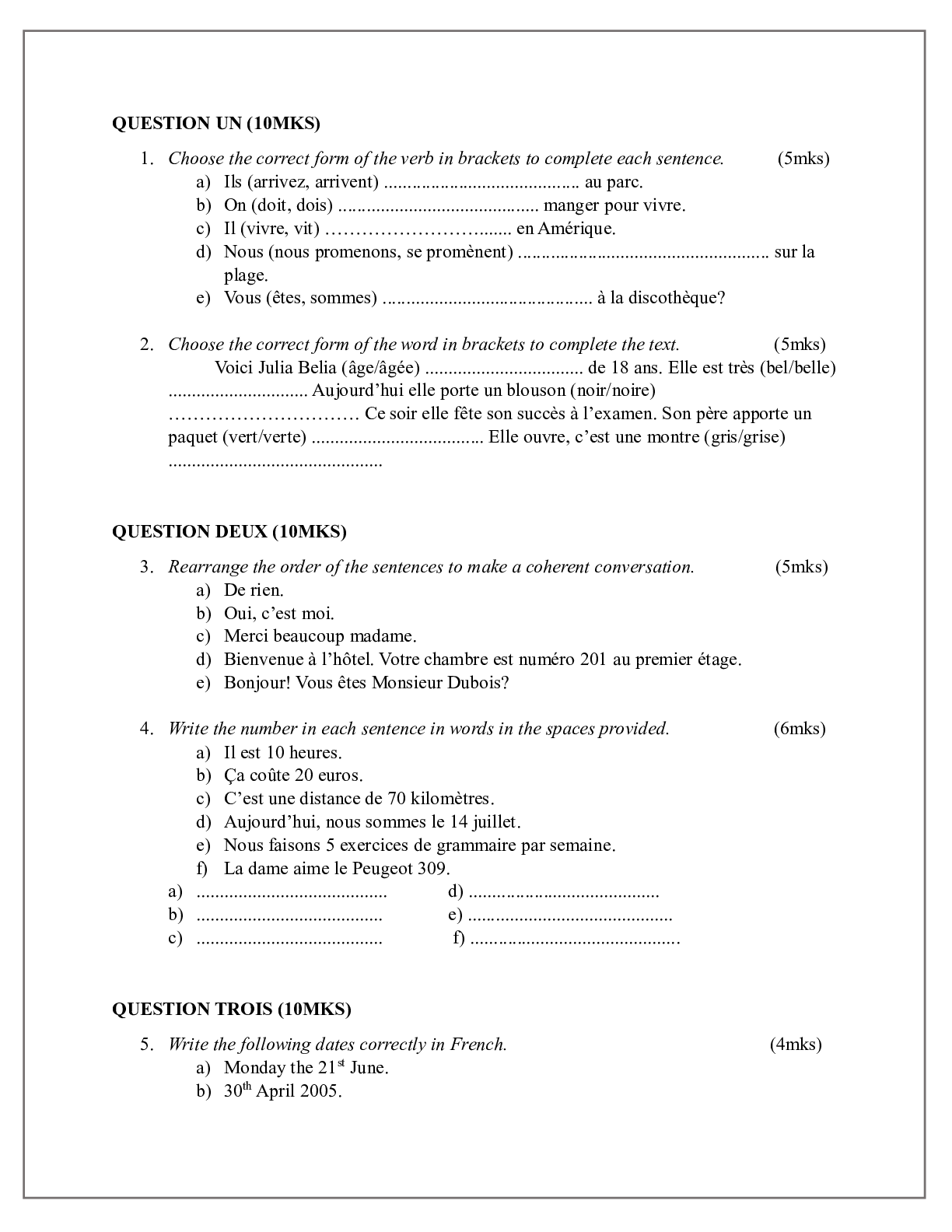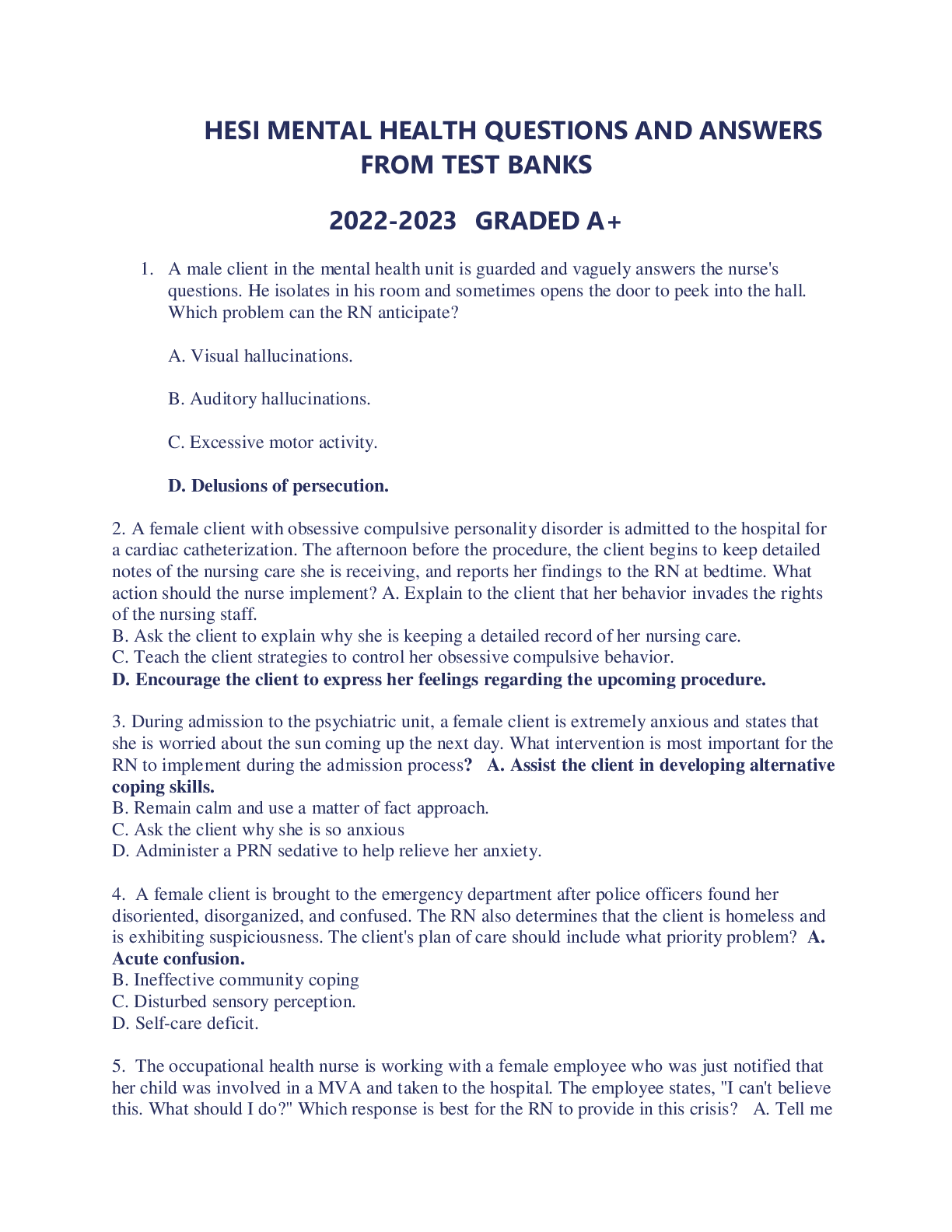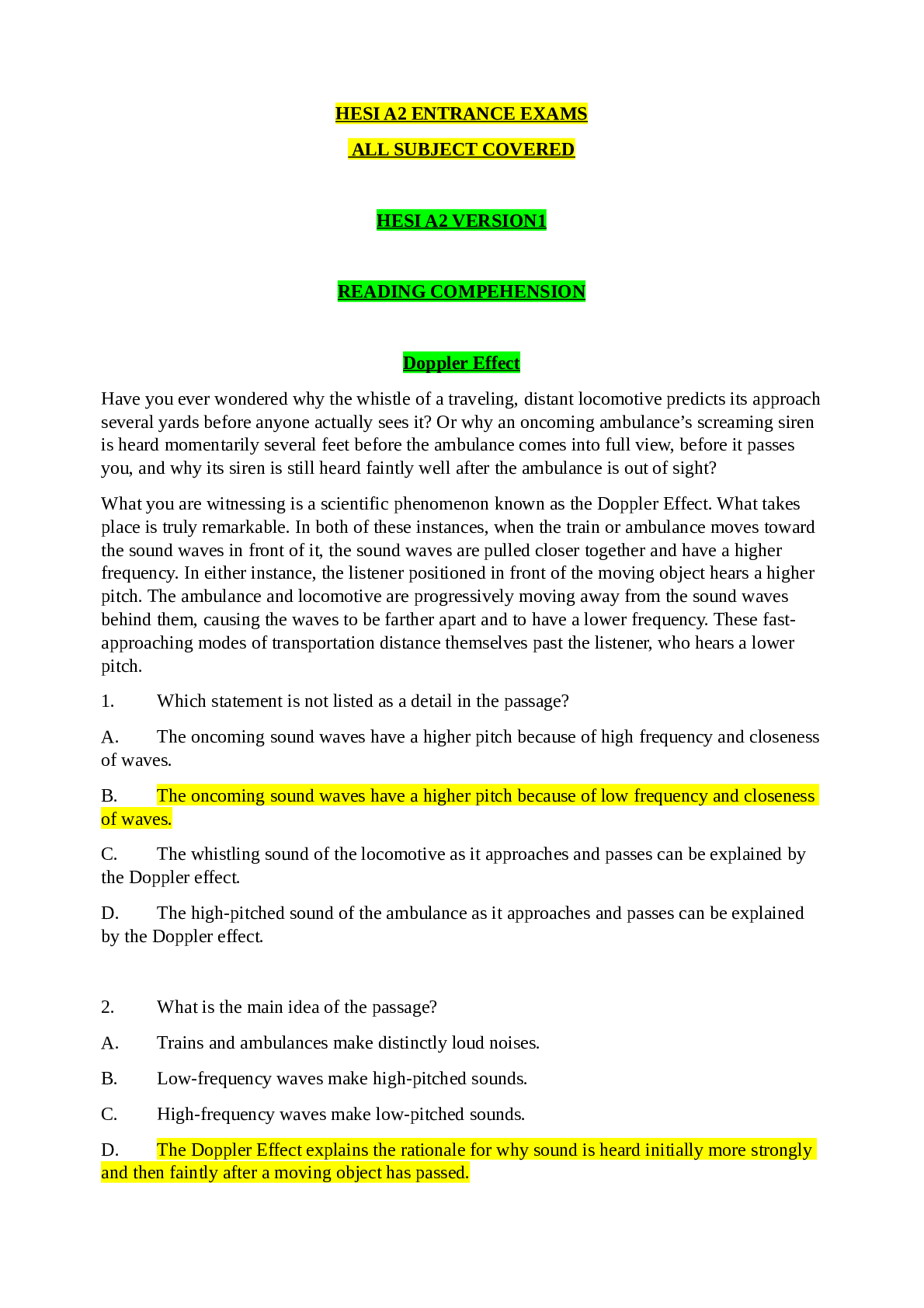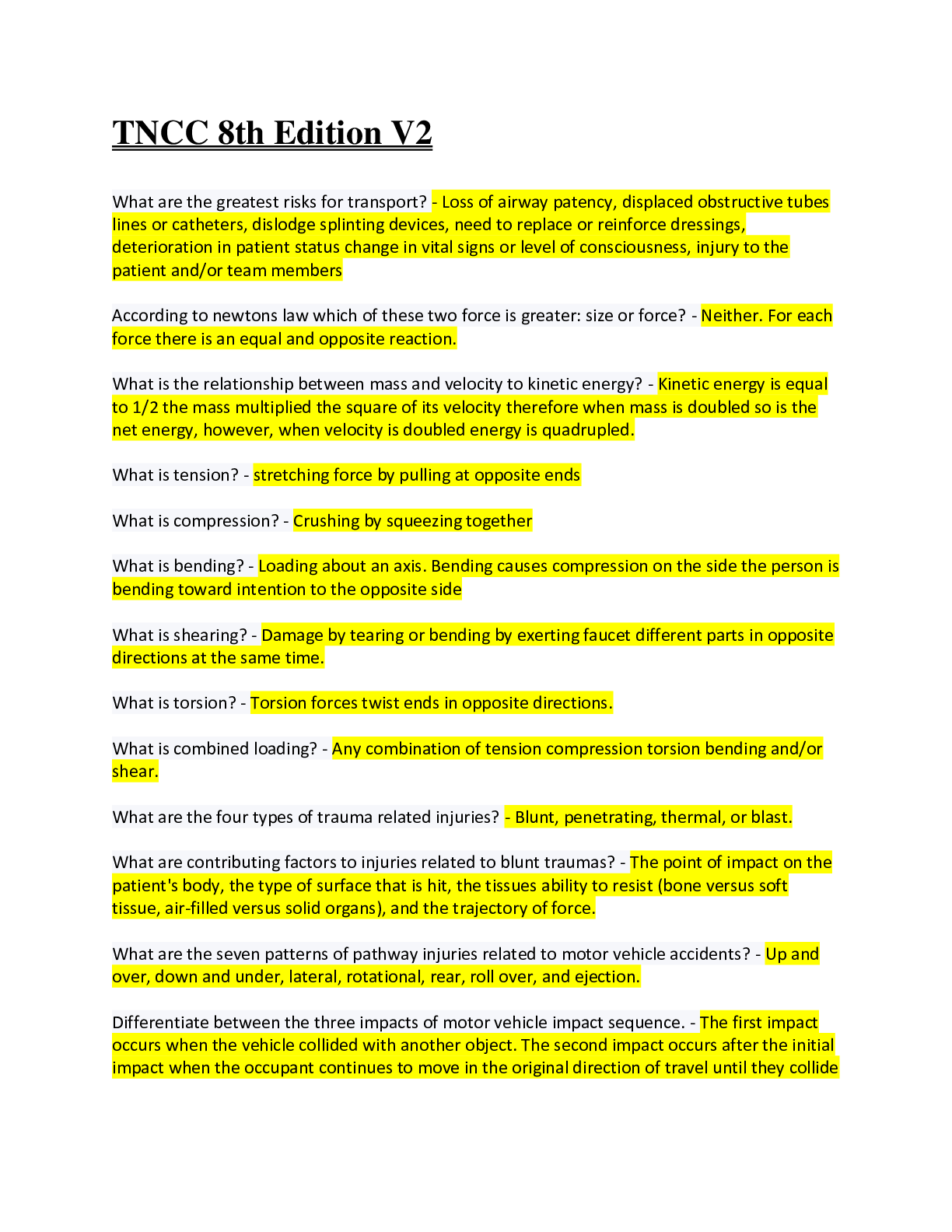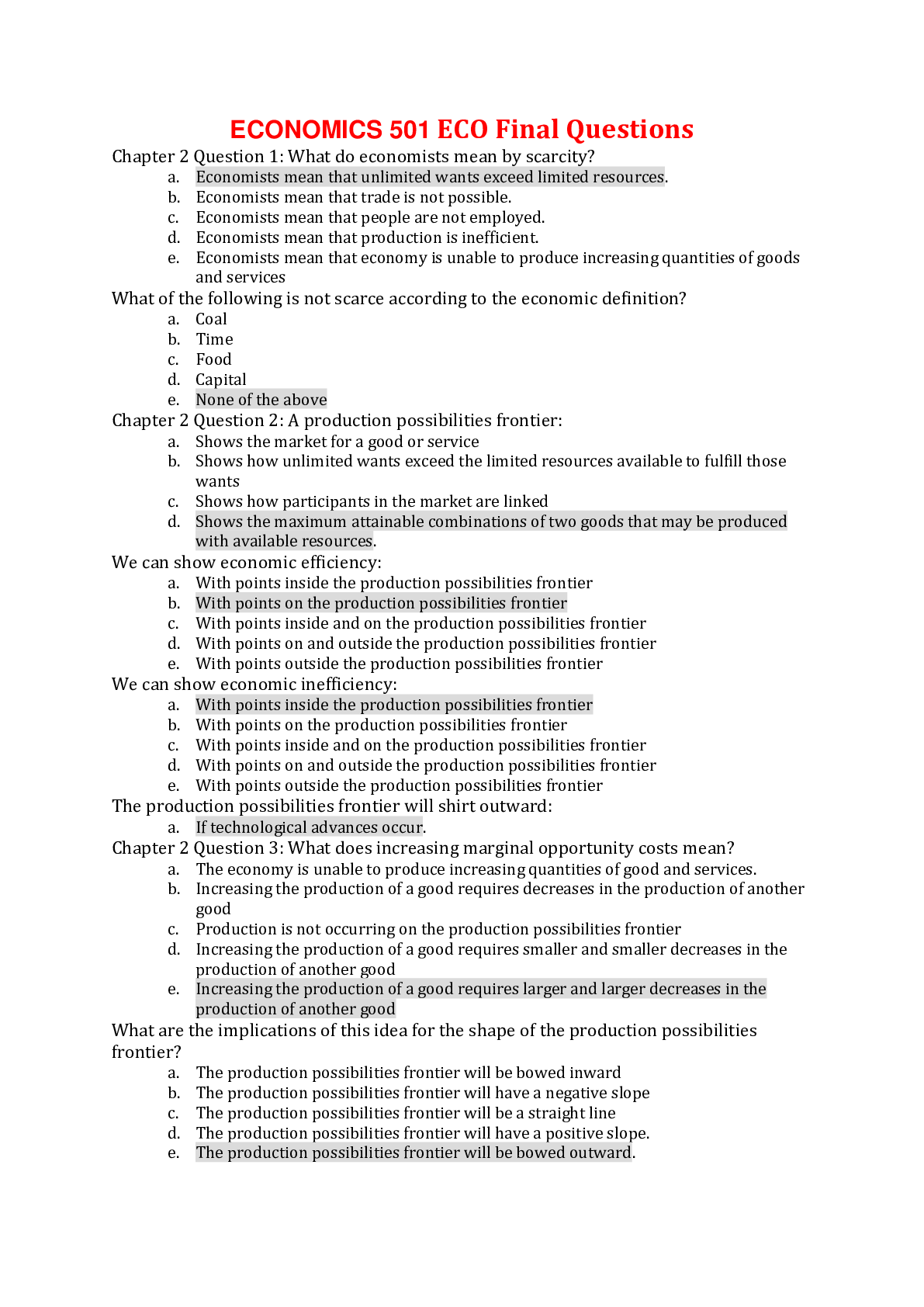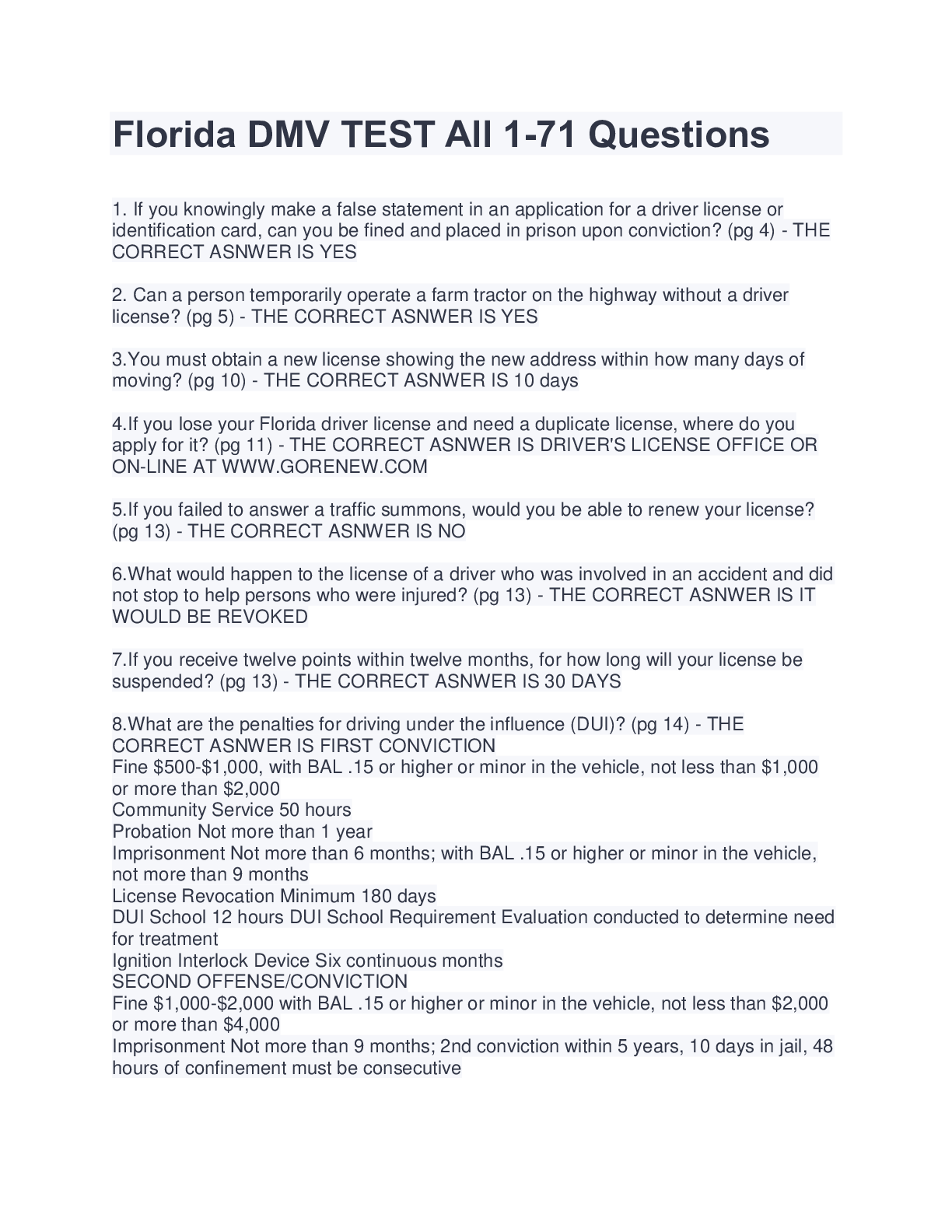A&E 1 Final GRADED A + WITH COMPLETE SOLUTIONS(400+ QUESTIONS)
Document Content and Description Below
A recently widowed 80-year-old male is dehydrated and is admitted to the hospital for intravenous fluid replacement. During the evening shift, the patient becomes acutely confused. The nurse's best ac... tion is to assess the patient for which of the following reversible causes?(Select all that apply.) a. Electrolyte imbalance b. Hypoglycemia c. Drug effects d. Dementia e. Cerebral anoxia - A&E FINAL 1 A, B, C, and E A patient continues to report postsurgical incision pain at a level of 9 out of 10 after pain medicine is given. The next dose of pain medicine is not due for another hour. What should the critically thinking nurse do first? a. Explain to the patient that nothing else has been ordered. b. Explore other options for pain relief. c. Offer to notify the health care provider after morning rounds are completed. d. Discuss the surgical procedure and reason for the pain. - A&E FINAL 1 B The nurse enters a room to find the patient sitting up in bed crying. How would the nurse display a critical thinking attitude in this situation? a. Tell the patient she'll be back in 30 minutes. b. Set a box of tissues at the patient's bedside before leaving the room. c. Ask the patient why she is crying. d. Limit visitors while the patient is upset. - A&E FINAL 1 C Professional standards influence a nurse's clinical decisions by a. Bypassing the patient's feelings to promote ethical standards. b. Establishing minimal passing standards for testing. c. Requiring the nurse to use critical thinking for the highest level of quality nursing care. d. Utilizing evidence-based practice based on nurses' needs. - A&E FINAL 1 C The nursing process involves which of the following steps in the clinical decision-making process? (Select all that apply.) a. Identifying patient needs b. Diagnosing the disease process c. Determining priorities of care d. Setting goals e. Performing nursing interventions f. Evaluating effectiveness of medical treatments - A&E FINAL 1 A, C, D, and E The nurse plans to complete a thorough assessment of an older patient. Which method should the nurse use to gather the most complete information? a. Use a geriatric assessment instrument to evaluate the patient. b. Ask the patient to write down medical problems and medications. c. Interview both the patient and the primary caregiver for the patient. d. Review the patient's medical record for a history of medical problems. - A&E FINAL 1 A The nurse cares for an older adult patient who lives in a rural area. Which intervention should the nurse plan to implement to best meet this patient's needs? a. Suggest that the patient move to an urban area. b. Assess the patient for chronic diseases that are unique to rural areas. c. Ensure transportation to appointments with the health care provider. d. Obtain adequate medications for the patient to last for 4 to 6 months. - A&E FINAL 1 C Which nursing action will be most helpful in decreasing the risk for drug-drug interactions in an older adult? a. Teach the patient to have all prescriptions filled at the same pharmacy. b. Instruct the patient to avoid taking over-the-counter (OTC) medications. c. Make a schedule for the patient as a reminder of when to take each medication. d. Have the patient bring all medications, supplements, and herbs to each appointment. - A&E FINAL 1 D A patient who has just moved to a long-term care facility has a nursing diagnosis of relocation stress syndrome. Which action should the nurse include in the plan of care? a. Remind the patient that making changes is usually stressful. b. Discuss the reason for the move to the facility with the patient. c. Restrict family visits until the patient is accustomed to the facility. d. Have staff members write notes welcoming the patient to the facility. - A&E FINAL 1 D An older patient complains of having "no energy" and feeling increasingly weak. The patient has had a 12-pound weight loss over the last year. Which action should the nurse take initially? a. Ask the patient about daily dietary intake. b. Schedule regular range-of-motion exercise. c. Discuss long-term care placement with the patient. d. Describe normal changes associated with aging to the patient. - A&E FINAL 1 C The nurse admits an acutely ill, older patient to the hospital. Which action should the nurse take first? a. Speak slowly and loudly while facing the patient. b. Obtain a detailed medical history from the patient. c. Perform the physical assessment before interviewing the patient. d. Ask a family member to go home and retrieve the patient's cane. - A&E FINAL 1 C The nurse cares for an alert, homeless older adult patient who was admitted to the hospital with a chronic foot infection. Which intervention is the most appropriate for the nurse to include in the discharge plan for this patient? a. Refer the patient to social services for further assessment. [Show More]
Last updated: 1 year ago
Preview 1 out of 31 pages
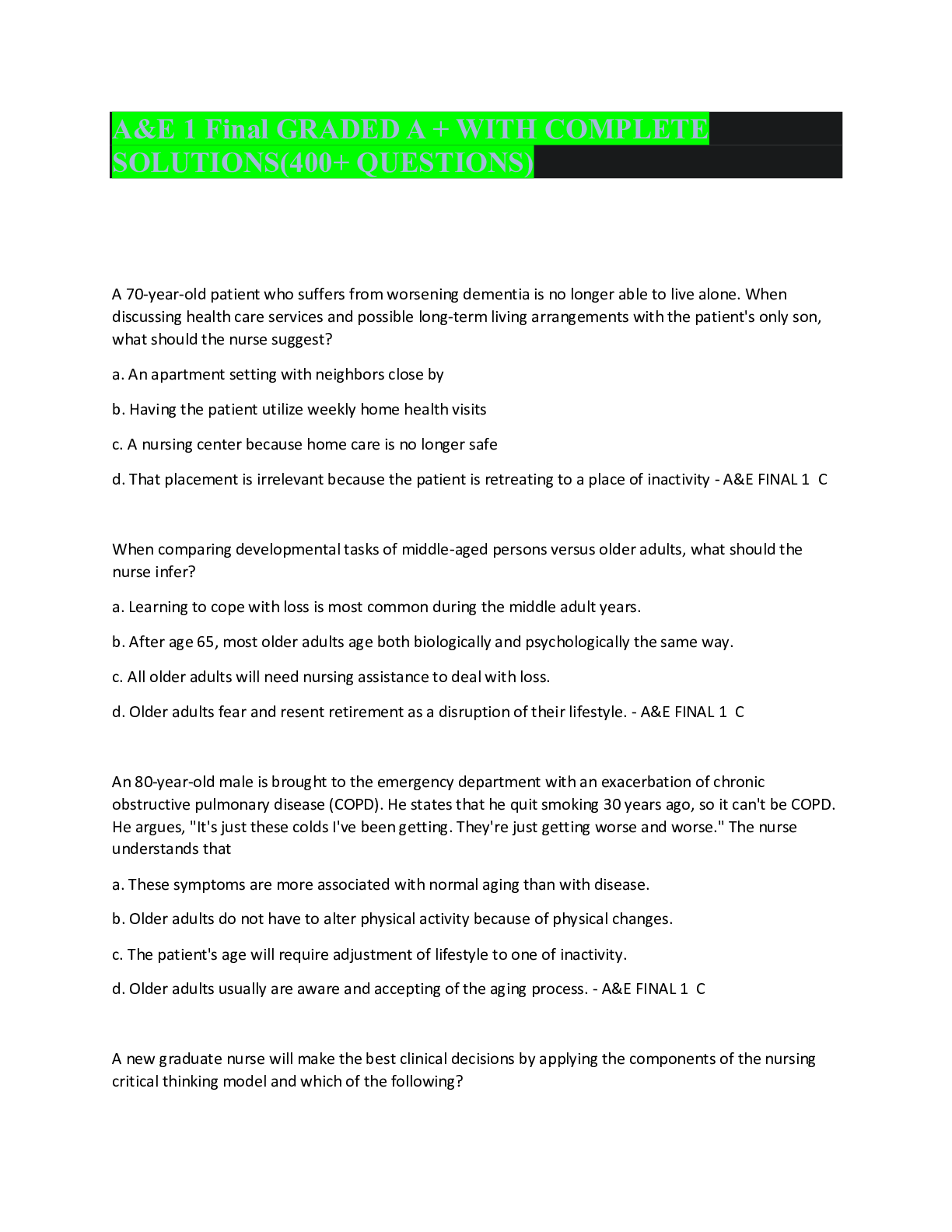
Reviews( 0 )
Document information
Connected school, study & course
About the document
Uploaded On
May 04, 2023
Number of pages
31
Written in
Additional information
This document has been written for:
Uploaded
May 04, 2023
Downloads
0
Views
47

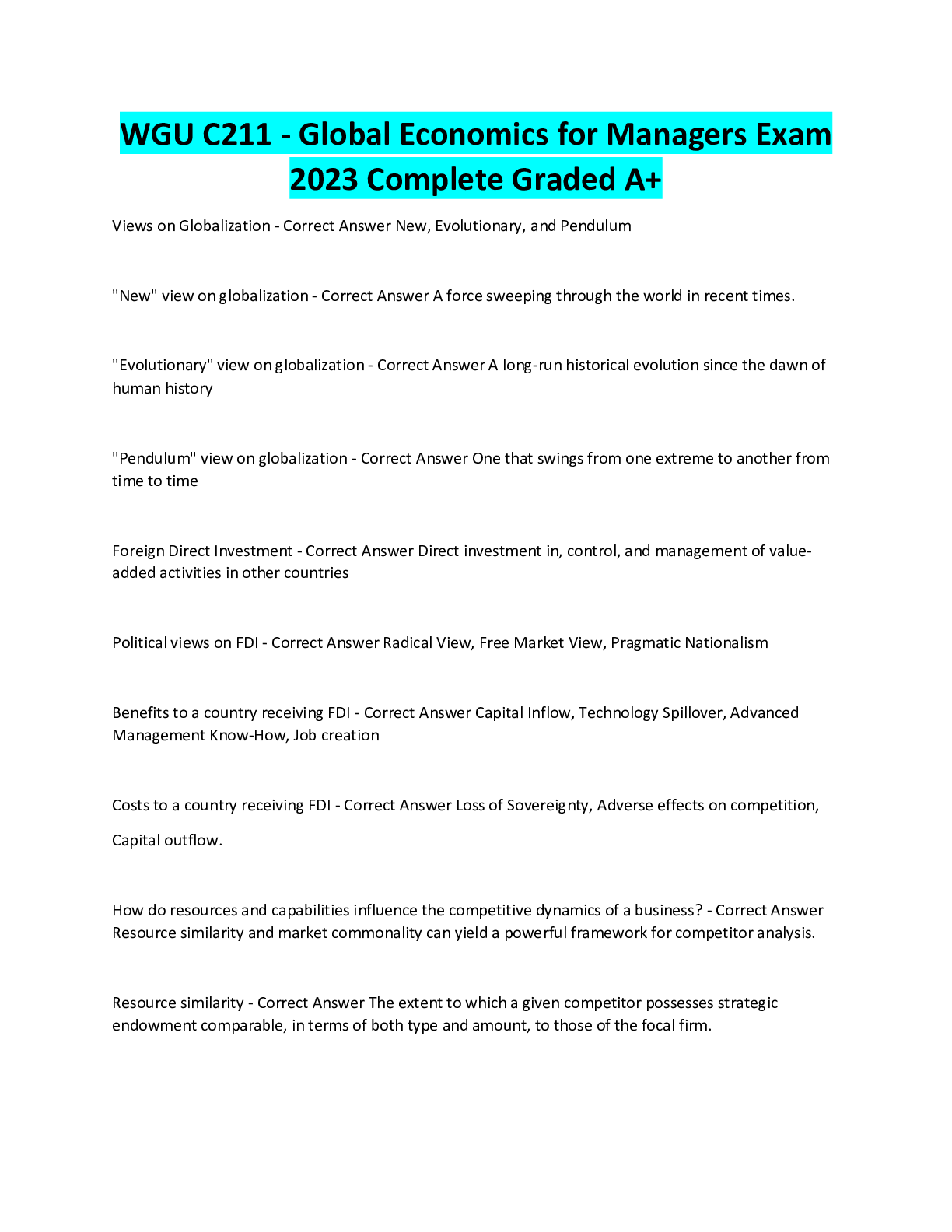
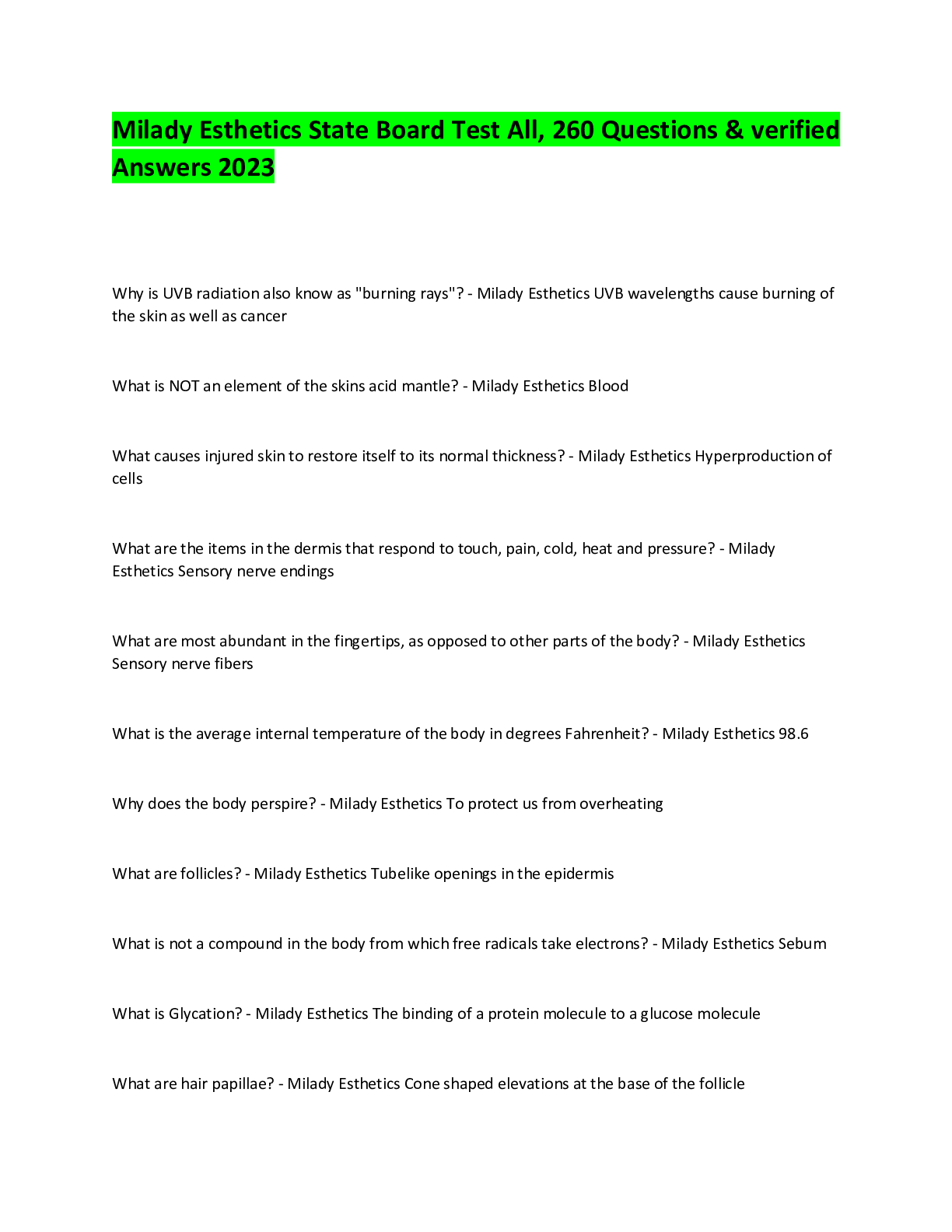
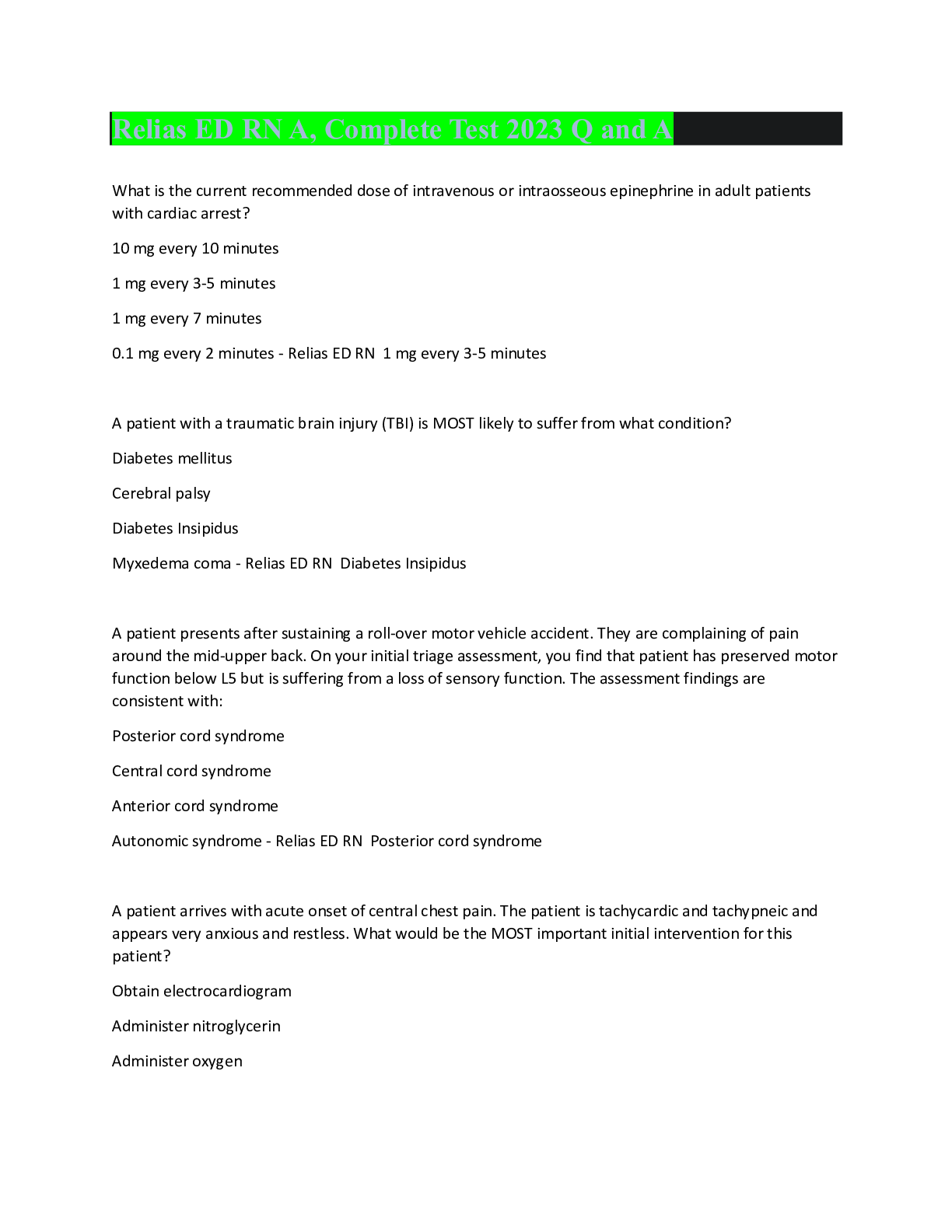
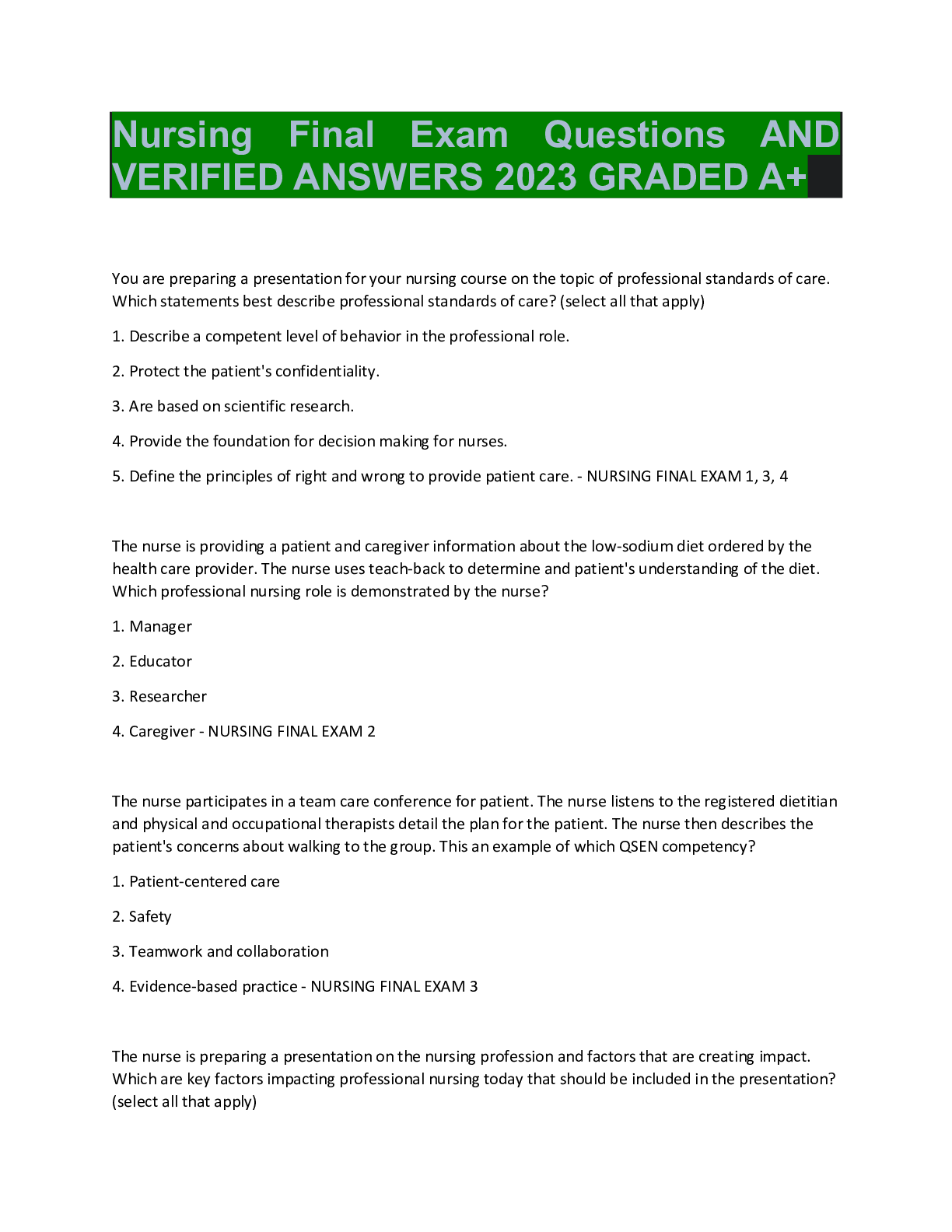
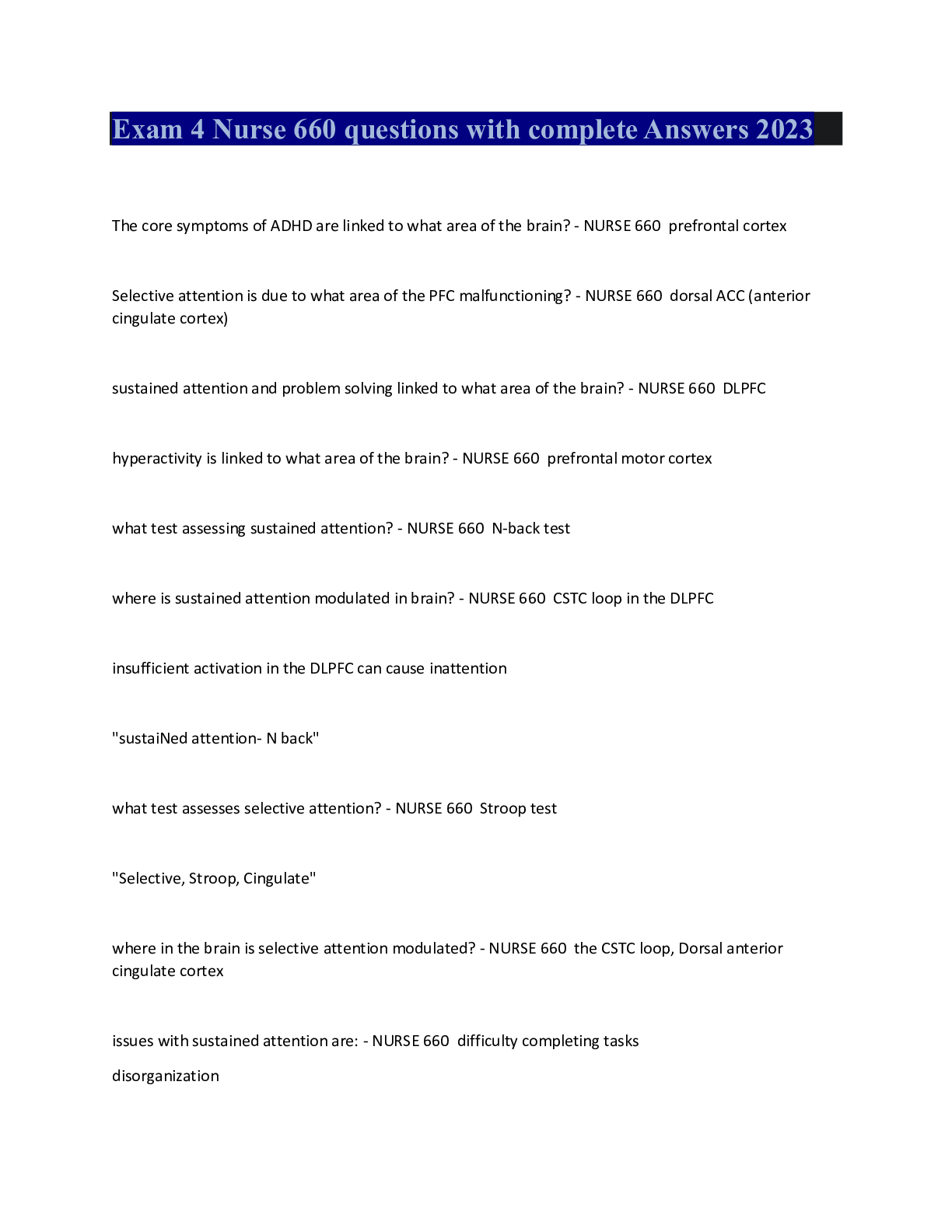
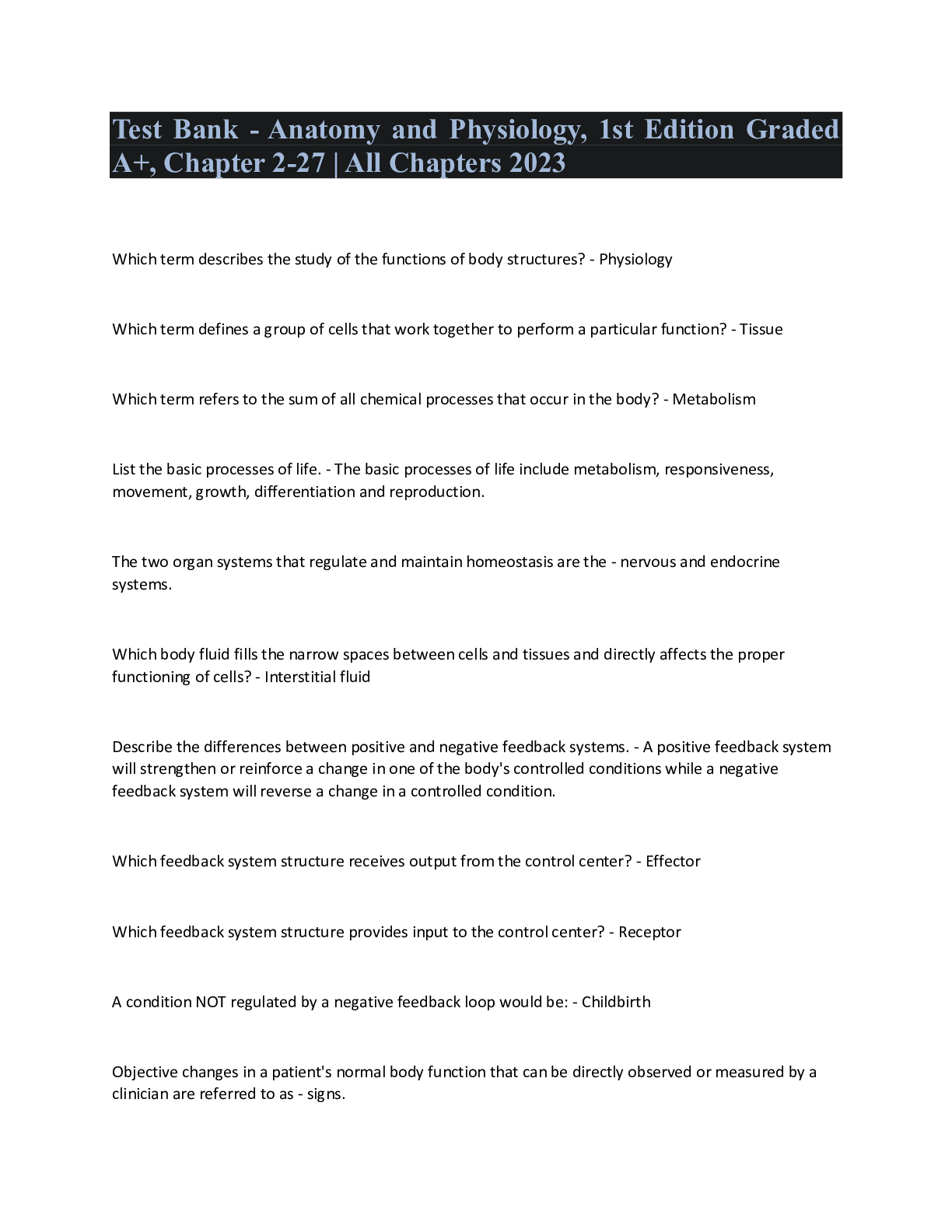
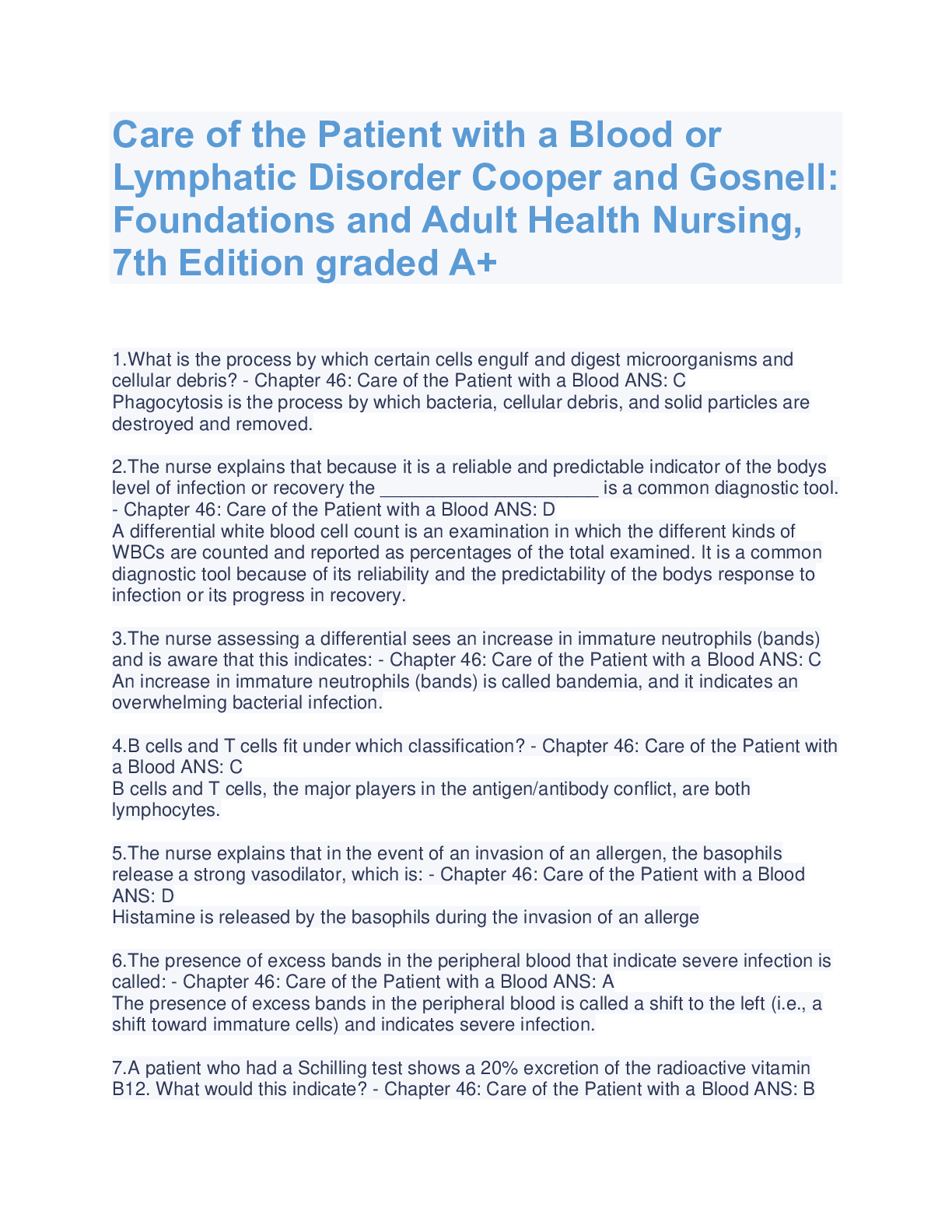

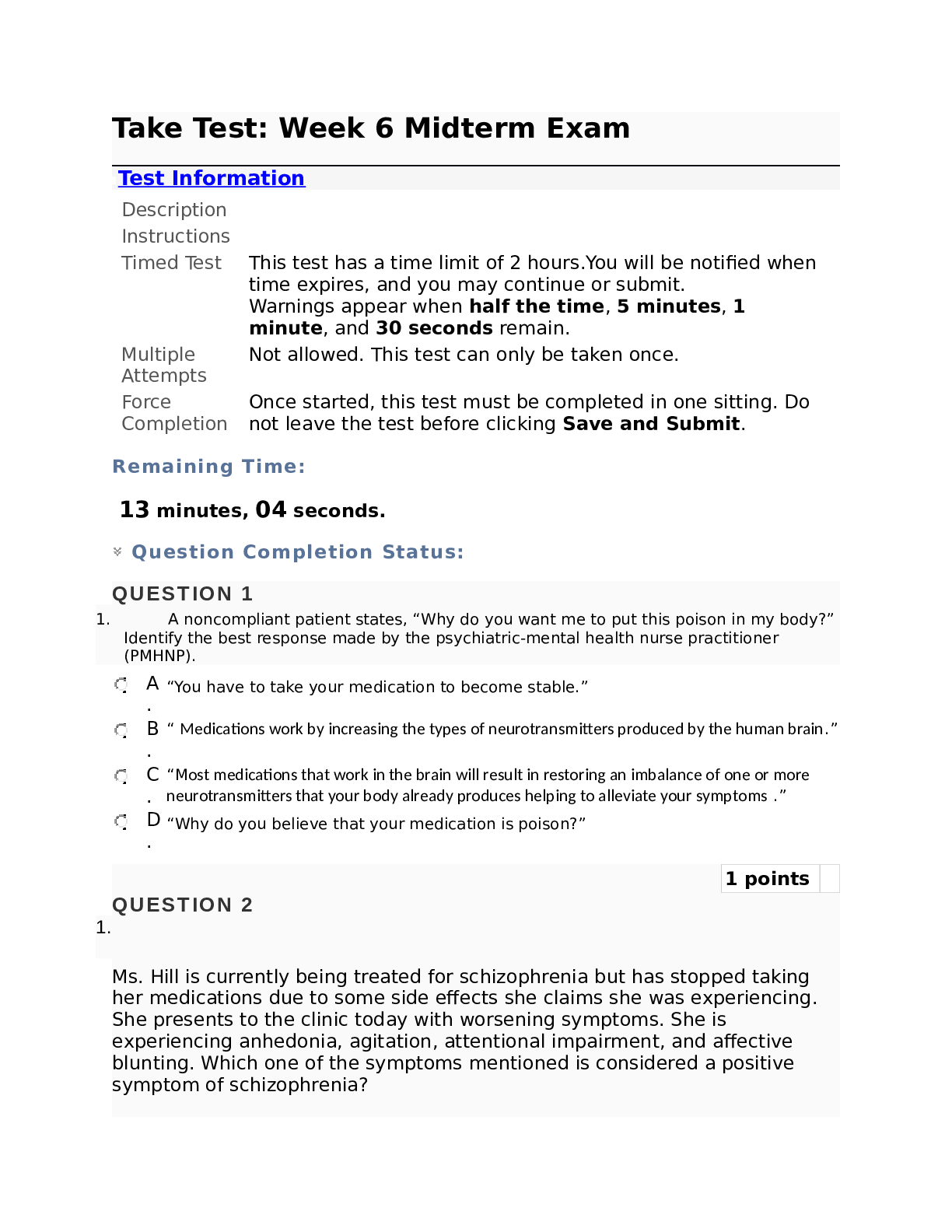
.png)


